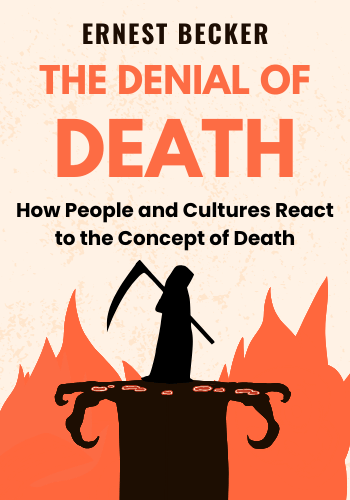
The Denial of Death
Ernest Becker
11 Key ideas
31 MINS
4.7 (1.5k)
Psychology Philosophy
Can we ever reconcile our dual nature of being half animal, half symbolic?
How do complex psychological theories by Erich Fromm, Kierkegaard, and Norman O. Brown help us understand this existential struggle?
What role does sexuality, cultural practices, and societal pressures play in our quest for heroism and self-discovery?
How can understanding mental illnesses like depression, schizophrenia, and neurosis help us navigate our existential dilemmas?
Can we ever reconcile our dual nature of being half animal, half symbolic?
How do complex psychological theories by Erich Fromm, Kierkegaard, and Norman O. Brown help us understand this existential struggle?
What role does sexuality, cultural practices, and societal pressures play in our quest for heroism and self-discovery?
How can understanding mental illnesses like depression, schizophrenia, and neurosis help us navigate our existential dilemmas?


Can we ever reconcile our dual nature of being half animal, half symbolic?
How do complex psychological theories by Erich Fromm, Kierkegaard, and Norman O. Brown help us understand this existential struggle?
What role does sexuality, cultural practices, and societal pressures play in our quest for heroism and self-discovery?
How can understanding mental illnesses like depression, schizophrenia, and neurosis help us navigate our existential dilemmas?
Key Ideas
Read | Listen - Full summary
About Author
Ernest Becker was an influential cultural anthropologist and interdisciplinary thinker best known for his work in the field of existential psychology. His seminal book, "The Denial of Death," published in 1973, delves into the human struggle with the awareness of mortality and how this shapes our behavior and cultural practices. Becker's work earned him the Pulitzer Prize for General Non-Fiction in 1974. His ideas have had a lasting impact on psychology, philosophy, and the humanities.
Learn Key Ideas from 9000+
non-fiction books in 15min.



